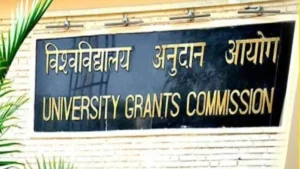यूजीसी से दिल्ली के आठ विश्वविद्यालय फर्जी घोषित, फिर भी...
Read More
How Hard Is It for a Student to Get PhD Admission in Universities?
Pursuing a PhD is a significant commitment that requires dedication, perseverance, and a strong academic background. While the process of getting into a PhD program varies across countries, universities, and fields of study, it is generally competitive and demanding. This blog explores the key factors that influence PhD admissions and provides insights into the challenges faced by aspiring doctoral students.
Table of Content:
- Understanding PhD Admissions Competitiveness
- Essential Admission Requirements
- Challenges Faced by PhD Applicants
- How to Improve Your Chances of Getting Admitted
- Conclusion
Consult with our Counselor
Understanding PhD Admissions Competitiveness
PhD admissions are highly competitive, with universities seeking candidates who demonstrate academic excellence, research potential, and alignment with faculty interests. The competitiveness depends on various factors, including the number of available positions, funding opportunities, and the reputation of the university.
Key Determinants of Admission Difficulty:
Field of Study: STEM fields often have more funding opportunities, while humanities and social sciences may have fewer spots available.
University Ranking: Higher-ranked universities attract a larger pool of applicants, making admissions more selective.
Availability of Supervisors: PhD candidates need a faculty advisor willing to mentor them, which limits admissions.
Funding Opportunities: Many universities provide limited funding, making self-funded applicants more likely to gain admission in certain cases.
Essential Admission Requirements
To secure a PhD admission, students must meet specific academic and professional criteria. Here are the key requirements:
a. Academic Performance
- A strong academic background is crucial. Most PhD programs require a master’s degree (or, in some cases, a strong undergraduate degree) with excellent grades.
- A high GPA (typically above 3.5/4.0 or equivalent) is expected, particularly from competitive institutions.
b. Research Experience
- Prior research experience is a major advantage. Applicants with published papers, research assistantships, or thesis work are preferred.
- A well-defined research proposal showcasing originality and feasibility is often required.
c. Standardized Tests
- Some universities, especially in the U.S., require GRE (Graduate Record Examination) scores.
- International students often need to submit TOEFL or IELTS scores to demonstrate English proficiency.
d. Letters of Recommendation
- Strong letters from professors or researchers who can vouch for the applicant’s research potential and academic capabilities.
e. Statement of Purpose (SOP) and Personal Statement
- A compelling SOP outlining research interests, career goals, and why the applicant is a good fit for the program.
f. Interview Performance
- Some PhD programs conduct interviews to assess a candidate’s motivation, research potential, and ability to contribute to the department’s academic community.
Challenges Faced by PhD Applicants
a. High Competition
With hundreds of applicants competing for a limited number of positions, even highly qualified students may struggle to secure admission.
b. Finding the Right Supervisor
Identifying a faculty member whose research aligns with the applicant’s interests can be challenging. Many professors have limited capacity to take on new students.
c. Funding Constraints
PhD programs often come with limited scholarships or stipends, making financial considerations an important factor.
d. Visa and Immigration Issues
International students must navigate visa regulations, which can sometimes make the process more complicated and uncertain.
e. Application Costs
Many universities charge application fees, and preparing standardized tests, transcripts, and travel for interviews can add financial strain.
How to Improve Your Chances of Getting Admitted
Start Early and Plan Ahead
Begin research on potential programs at least a year in advance.
Identify and contact potential advisors to express interest and discuss research alignment.
Build a Strong Research Profile
Get involved in undergraduate or master’s research projects.
Publish papers or present research at conferences if possible.
Tailor Applications to Each University
Customize SOPs to align with each institution’s faculty expertise and program strengths.
Highlight relevant coursework, projects, and experiences that make you a strong candidate.
Secure Strong Recommendations
Develop meaningful relationships with professors and mentors who can write detailed and supportive recommendations.
Prepare Well for Interviews
Be ready to discuss your research interests, future goals, and how you can contribute to the department.
Demonstrate enthusiasm and knowledge about the faculty members’ work.
Conclusion
Getting into a PhD program is undoubtedly challenging, but with careful preparation, strong academic credentials, and persistence, it is achievable. The key to success lies in thorough research, strategic application planning, and demonstrating a clear research vision. If you are truly passionate about a field of study and committed to contributing to academia, the journey to a PhD can be an incredibly rewarding one.
UGC Releases Important Notice For Students, Warns Against Fake Universities Awarding Degrees
UGC Releases Important Notice For Students, Warns Against Fake Universities...
Read MoreNAAC: What about accreditation of accreditors?
NAAC: What about accreditation of accreditors? The NAAC is in...
Read MoreHow to Prepare for a PhD Interview Without a Specific Research Topic?
How to Prepare for a PhD Interview Without a Specific...
Read More


